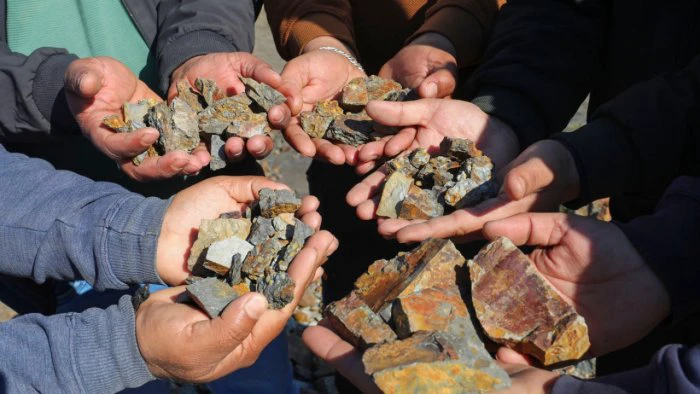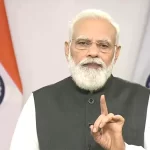Commercial exploitation of just around 10 per cent of the total 5.9 million tonnes of lithium reserves discovered in Jammu & Kashmir can power six crore electric vehicles, nearly 1.5 times of around 4 crore vehicles on the Indian roads, senior industry executives said.
‘We are convinced that electric mobility is the future,’ said Executive Director of Fortum Charge & Drive India Awadhesh Kumar Jha adding the discovery of lithium reserves in Jammu & Kashmir and Rajasthan would make the transition into green energy easier.
The Geological Survey of India has discovered 5.9 million tonnes of lithium reserves in Reasi district of Jammu and Kashmir. According to sources, the union cabinet on Wednesday approved amendments to the Mines and Minerals (Development and Regulation) Act, 1957 that will pave the way for auction of lithium reserves.
Tesla rolls out global customer referral program as EV price war heats up
Secretary of Mines Vivek Bharadwaj recently said that the auction for commercial exploitation of lithium reserves in Jammu & Kashmir is likely to start by the end of 2023 calendar year.
Jha said the commercial exploitation of lithium reserves would make India’s transition to electric mobility smoother and faster.
Lithium, often referred to as ‘white gold’, is a non-ferrous metal and is one of the key components in EV batteries. A typical EV battery or lithium-ion battery has around 8 kg of lithium.
India is currently dependent on imports to meet its lithium-ion battery requirements. India’s import of lithium-ion batteries stood at Rs 8,811 crore in the financial year 2020-21, as per data shared by Union Minister Pralhad Joshi in the parliament last year. Around 73% of it came from China and 23.48% from Hong Kong. So around 96% of the total lithium-ion batteries imported in India come from China and Hong Kong. Vietnam, Malaysia, South Korea and the United States are among other suppliers of lithium-ion batteries.
The import of lithium-ion batteries are set to surge in the coming years as the country pushes for increased production of electric vehicles. As per the government target, at least 30% of the new vehicles sold in the country would be electric. At present, this number is less than 1%.
President of Fortum India Sanjay Agarwal said India is on the cusp of disruption in electric mobility. Drawing a parallel with the exponential growth in solar power output in the last 10 years, Agarwal said a similar growth is expected in the electric vehicle segment in the next decade. ‘Solar power output jumped by around 200 times in the past one decade. We are expecting similar expansion in the electric vehicles segment in the next 10 years,’ he said.
Fortum India is one of the leading charge point operators in India. The company provides charge point facility for electric vehicles under the brand ‘Glida’. It was earlier known as Fortum Charge & Drive India.
Talking about the company’s expansion plan, Jha said Fortum India targets to double the number of charge points to 1000 by March 2024 from the current around 500.
‘Currently we have around 12% of the market share. By 2030 our target is to increase our market share to over 30%,’ Jha said.
Source: Deccan Herald










